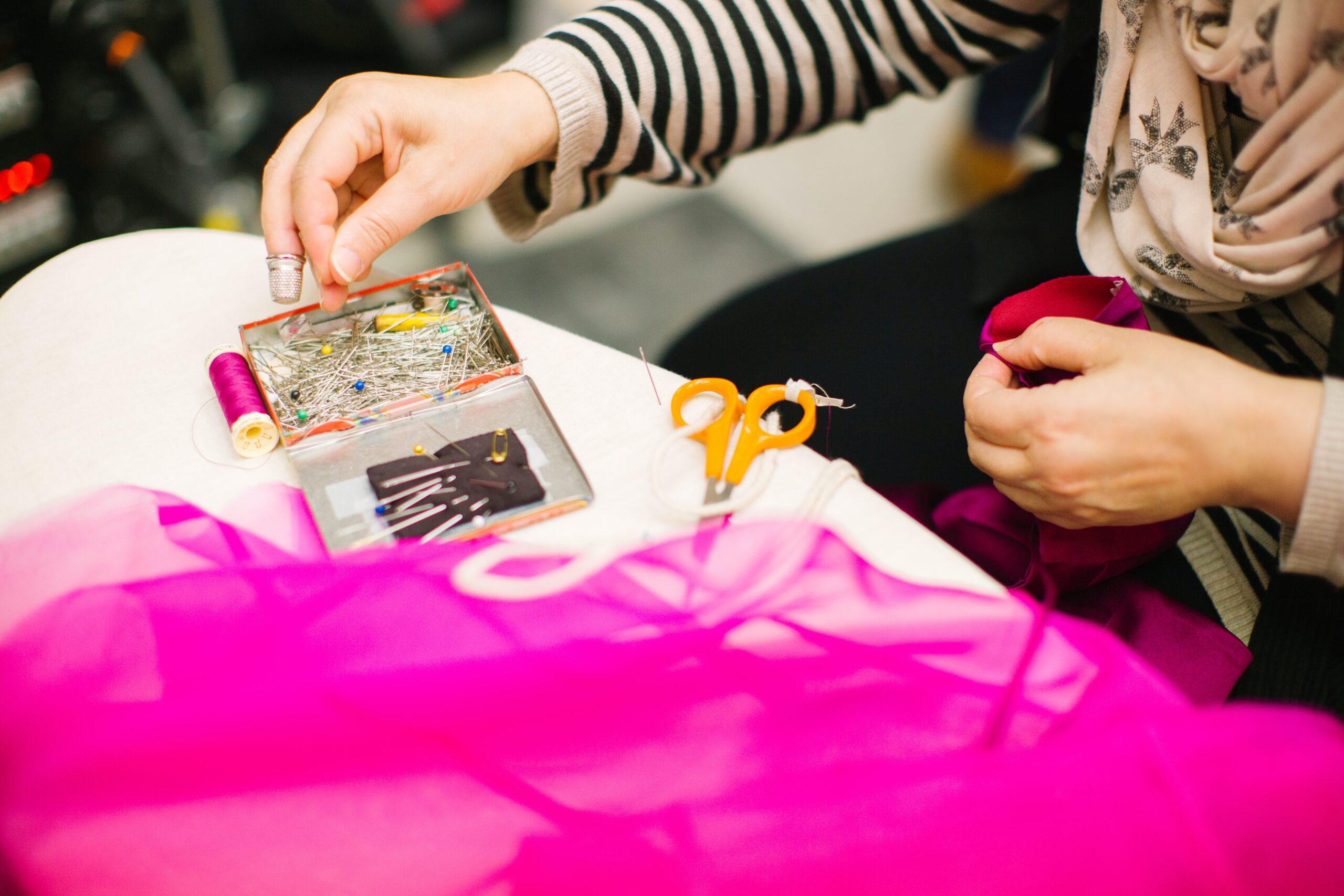Welcome to the second edition of SPWS Quarterly, a newsletter shaped by users of the Sunderland Psychological Wellbeing Service (SPWS). Designed to share lived experience and help readers maintain a sense of positive mental wellbeing after accessing therapy, we hope you enjoy the latest edition.
The newsletter is a reminder to pause, reflect and share progress. This edition in particular has been shaped by a clear enthusiasm from our contributors to share the new activities that have helped improve and maintain their wellbeing in recent times.
Often if we are feeling low and worrying a lot, we can get into a negative cycle of avoidance, inactivity and withdrawal. With busy lives and daily stressors, we can forget to make time to try new things and it can sometimes seem there are barriers in our way. Over the last two years, such barriers have been obvious with our routines and opportunities impacted by the pandemic. Other barriers may include financial, time or the anxiety and motivation for making a start. But there are ways to overcome this and we feel that the contributions in this edition of SPWS newsletter provide inspiration and practical examples of doing just that.
Trying a different activity or learning a new skill can bring a sense of positivity, opening us up to new possibilities and a greater connection with others. The process of thinking outwardly, doing simple and absorbing activities can take you away from thinking too inwardly, helping you release worries and boost mood.
To get started, it’s all about setting goals, making small steps, doing some research, utilising support from others and scheduling some time to give it a go. We would love to hear about what you have tried recently so please don’t hesitate to get in touch to share your story.
When trying to engage in a more active routine it is important to be aware of aiming too high or leaving too much to chance. Also, gaining support from others can be really helpful. In this edition of the newsletter, we will also be highlighting some great services that provide support and opportunities to get more involved and engaged.
Women’s football and my journey
 I first got into football in primary school at around the age of five, I joined a local youth team and played for my school, both teams were male-dominated but this didn’t bother me. At the age of 13 I had to move to an all girls team which was more difficult to find and after only a year playing for a girls team I stopped playing until I went to University at 18 and joined the women’s football team there, re-igniting my passion for the sport. Seven years on and I am still playing women’s football, I have started a new chapter this season by signing for Hartlepool United Women’s FC and loving it.
I first got into football in primary school at around the age of five, I joined a local youth team and played for my school, both teams were male-dominated but this didn’t bother me. At the age of 13 I had to move to an all girls team which was more difficult to find and after only a year playing for a girls team I stopped playing until I went to University at 18 and joined the women’s football team there, re-igniting my passion for the sport. Seven years on and I am still playing women’s football, I have started a new chapter this season by signing for Hartlepool United Women’s FC and loving it.
Joining the university’s women’s football team was undoubtedly one of the best decisions I made during my time as a student as it helped me massively with my mental health. Not only was it a way to relieve stress and take a break from the worries of studying but it was a great way to make friends and gain a sense of belonging. This is the same in women’s football outside of university too, I feel that playing football hugely benefits my mental health as it helps me to manage my anxiety by building my confidence and social network, as well as keeping my body and mind active and giving me something to look forward to.
I would advise anyone considering joining a women’s football team to do it, after all there is nothing to lose! The best ways you can get involved are by looking up local teams on social media or online, or via the FA website.

There are undoubtedly barriers to playing, especially if you are new to the sport but the good news is that these barriers are mostly personal and can be overcome. It is normal when trying something new to feel uncomfortable or nervous as I know I did, even after playing when I was younger. Luckily teams are very welcoming and supportive, and the benefits far outweigh the initial uncertainties. Other barriers could come from the fact that there is still some stigma around women playing football as it could (ignorantly) be seen as a ‘man’s game’, but women’s football is growing massively, not only professionally through the media but also at grassroots level too. I believe that now is a great time to get involved in women’s football as there are so many more opportunities for females of all ages and abilities, far greater than when I was first starting out as a child, and it will only continue to grow.
Returning to crafting and how it helped my mental health
 When you feel low, focusing on doing something simple you enjoy can feel like the last thing that would help. However, this was how I returned to crafting.
When you feel low, focusing on doing something simple you enjoy can feel like the last thing that would help. However, this was how I returned to crafting.
Thirty-seven years old and feeling burned out every day, I was referred to Talking Therapies by my GP. Experiencing poor sleep and low concentration, I was feeling very little enjoyment in anything. I was struggling with work, housework & basic self-care. Somehow, I got through the workday and then collapsed. It impacted every part of my life: my relationship, family, and friends.
I’d always been a creative person, but this had been lost to the energy I was putting into working full time in healthcare. When my therapist suggested I carve out some time for crafting again, I was willing to try, but not sure what it would solve. Prioritising something as simple as making pom-poms when the dishes were stacked up in the sink felt frankly weird. That first Saturday morning crafting for an hour instead of trying to tackle the list of jobs first thing felt…energising. I was amazed!
Now it’s a vital part of my self-care. I benefit from the hand motions of making the pom-poms being easy but engaging, it seems to channel what would usually be anxious hand fiddling. Picking the yarn colours is joyful on a grey day. It’s absorbing enough that my brain focuses & the stress takes a back seat. It’s a type of mindfulness I can practice. I feel more rested and can tackle the tougher bits of life with more energy, rather than feel defeated
The sense of achievement when I finish a piece is surprisingly lifting. Sharing my progress with the people I love has created positive conversations which feel nice to have. It’s encouraged my partner make time to sit with me and work on his projects, which means we have inspiring talks instead of bickering about chores. My sister is proud that someone in the family has a “proper hobby”.
I now understand that constantly being focused on what should get done is both mentally and physically exhausting. It can become like quicksand. If you struggle, you sink; if you stop struggling, you float. There is always something that needs to “get done”, but we need to make space for joy in our lives too.
Woodworking! Just start small
 My interest in woodworking started as a child when my Dad would show me how to make little things, that I could keep and share with my family. Over the years this interest became more of a hobby, where I began making furniture for my home, for family and friends. In the early months of COVID, I attended a welding course at a local college to expand my skills around working with metal, attending an introductory course in MIG Welding. This allowed me to combine both methods to build on all that I had already learned.
My interest in woodworking started as a child when my Dad would show me how to make little things, that I could keep and share with my family. Over the years this interest became more of a hobby, where I began making furniture for my home, for family and friends. In the early months of COVID, I attended a welding course at a local college to expand my skills around working with metal, attending an introductory course in MIG Welding. This allowed me to combine both methods to build on all that I had already learned.
I am fortunate now, to have my own little workshop, where I find working very calming. The whole process of creating a design, cutting the materials, and seeing the project come together is extremely rewarding. When people comment on my work, without knowing that I have built it, has a positive impact on my overall drive and mood. So much so, that in recent months I have been working towards taking it from a hobby to my own small business, something I could have never imagined.
Sometimes I can struggle with self-doubt and confidence when showing my finished work to others. However, by engaging in mental health support, I am more self-aware, in turn this has enabled me to challenge any previous negative thinking styles, relating to my confidence. I have recognised the importance of engaging in this activity to improve, support and maintain my mood. More recently, I set about organising my workspace, a reflection of my thoughts and feelings becoming more organised, finding a balance. If you want to get started with woodwork, just start small with a few basic tools, such as a drill and a jigsaw. If you want plans or ideas, start with YouTube, looking at woodwork for beginners, or woodwork with basic tools. Making something for someone else, that is unique and that you have taken the time to create, is very fulfilling.
More importantly, it has an overall positive impact on my general mental health and finding balance in my life.
Getting actively involved with mental health specific projects with CNTW
Trying something new and connecting with the wider Mental Health network may involve direct engagement with our Trust and there are many opportunities as discussed by Kerry Jackson, the Patient and Carer Involvement Facilitator for the South Locality.
The Involvement Bank is a database of service users and carers who have identified their interest in taking part in involvement activities.
Types of involvement activities:
• Assisting with training staff
• Recruitment of staff
• Service developments
• Hospital inspections and visits
• Steering groups
• Delivering personal journey presentation
Service user and carer involvement is about using your lived experience of receiving mental health services and/or your experience of caring for someone who accesses services. It is ensuring service users and carers voice is at the heart of all decisions made within the trust. Involving patients, carers, and their families in making decisions about their care can lead to better outcomes and a better overall experience. We are looking at new ways to involve service users and carers in shaping future healthcare services.
It’s different to mainstream volunteering which is an agreed regular commitment. Involvement is short term activities on an ad-hoc basis and it’s different to employment. For example, we now offer recognitions payments to acknowledge your contribution as an opt in scheme.


Other opportunities to get involved include CNTW 2030
CNTW 2030 is a project to imagine the Trust’s future role in improving the health of our local communities. Our local communities want different parts of the NHS and other organisations to understand their health needs and provide joined-up healthcare. We can only do this by working together and listening to the experiences of others.

To prepare for the future so that people receive the best possible care, we must:
Learn from the experience of people who have been involved with CNTW, as a patient, carer, member of staff or organisational partner.
Think about how we want to work with each other and influence the things we can change.
Be realistic about the likely challenges and opportunities as we head towards the next decade.
Work life can be difficult, especially at the moment, but by having your say now you can help make improvements for the future.
We would love to hear your views, whether you’re a member of staff, patient, carer or from one of our partner organisations. To find out more about the project and to have your say go to https://www.cntw.nhs.uk/about/trust/cntw-2030/
Employment Support Service
The service supports people accessing Sunderland Psychological Wellbeing Service (SPWS) to find employment and retain employment. This includes those who are:
- Unemployed and seeking employment, where their mental health is a barrier to finding and keeping a job.
- In employment and are struggling with their job role due to their mental health. This can also include a long term condition (service protocol) that impacts on their mental health that then in turn impacts on their ability to carry out their job.
- In employment and are on sick leave (long term and short term) due to their mental health. This can also include a long term condition (service protocol) that impacts on their mental health that then in turn impacts on their ability to carry out their job.
- In employment and are at risk losing their job (capability / disciplinary) due to their mental health. This can also include a long term condition (service protocol) that impacts on their mental health that then in turn impacts on their ability to carry out their job.
To engage, you must be active to SPWS, accessing a therapy and have a named lead professional.
“I really appreciate all your help, support and advice during a very difficult time, when my mental health was suffering due to a work issue.”
“This service was a fantastic help to myself during this process.”
“I would very like to thank you and your team for amazing support over these past months. I really don’t know how I would have found my way without your advice and guidance.”
SPWS Online Engagement Group
The group is for past service users who are keen to share their stories, opinions and ideas about mental health and help to improve our service. It’s your chance to be involved and help us to make services better.
At each meeting we will spend time covering the topics that matter to you. We know that maintaining your mental wellbeing is a journey. We feel SPWS groups can help maintain your sense of empowerment over your own stories whilst sharing it with others.
The session will last for one hour and will run every two months. The session will be online via Microsoft Teams. The Trust’s Involvement Team will be able to support you with this if you’ve not already got access. You can email them at [email protected]
To be part of the Engagement group, you must have:
• Engaged in a full course of intervention with SPWS within the past four years.
• Have an understanding of anxiety and mood management and happy to share what works for you.
• No current concerns about managing your wellbeing or require clinical support at this time.
The next group is 4pm on Wednesday 04 May 2022. If you would like to take part, please email: [email protected] and reference ‘Engagement Group’ or call us on 0191 566 5450 to express your interest.
To find out more about how we involve people in the development of our services, visit www.cntw.nhs.uk/services/involvement/involvement-bank or speak with the practitioner you are working with. Together, we explore the journeys of moving forward.
Outside the Trust we often recommend the Recovery College to our clients…
Situated near the heart of Fulwell, the Recovery College offer courses, workshops and drop-in classes to the residents of Sunderland. The recovery focused educational courses are for people with lived mental health experience, their friends and family.
Courses are designed to contribute to recovery and well-being, supporting you to recognise your own talent and resourcefulness. They are Peer Led, and provide an opportunity to connect with others and learn new things. All our courses are provided free of charge and cover a range of activities from crafts, drama, journaling to relaxation approaches.
For further information and to get involved check out www.sunderlandrecoverycollege.com
SilverCloud Experience
 One of our recent student Mental Health Nurses and passionate advocates for making change through service user involvement has contributed this personal reflection of engaging with online therapy via Silverloud. The platform, offered by Sunderland Psychological wellbeing service, is a computerised Cognitive Behavioural Therapy (cCBT) programme whereby users can help be helped to learn new skills to overcome the challenges and improve mental wellbeing. Here she tells her story…
One of our recent student Mental Health Nurses and passionate advocates for making change through service user involvement has contributed this personal reflection of engaging with online therapy via Silverloud. The platform, offered by Sunderland Psychological wellbeing service, is a computerised Cognitive Behavioural Therapy (cCBT) programme whereby users can help be helped to learn new skills to overcome the challenges and improve mental wellbeing. Here she tells her story…
Just like most people, I have experienced the up-and-downs of life, but it was the ‘downs’ that inspired me to train as a nurse specialising in mental health.
September came around and I was excited to move to a new city and start my course – I couldn’t wait to starting training as a nurse and meet life-long friends along the way. The first week of university seemed underwhelming, but maybe my expectations had been too high? The weeks passed before me and I was lonelier than ever. I hadn’t gelled with my flatmates, nor my course mates, and I noticed that the ups-and-downs were mainly all downs.
For weeks I plodded on, sinking deeper into a depression. I began feeling ashamed. How could someone feeling like this ever become a qualified nurse? If I couldn’t cure my own depression, how could I cure anyone else’s? But, that was when I realised, that mental illness does not discriminate. Mental illness can effect anyone, regardless of their age, gender, social status or job.
It was at this point I decided to reach out. After speaking to my GP, I was invited to try an online programme named SilverCloud. At first I was sceptical and wondered how an online programme could possibly improve my mental health, but I decided to give it my all.
For the course of 6 weeks, I completed a variety of programmes tailored to my specific needs. I began to accept that there was more going on in my life than the odd ‘down’ moment and that there were unresolved traumas affecting me. I was able to use the programmes to understand why I was feeling the way I was, to understand my triggers, why I was exhibiting certain behaviours and how to prevent having negative and self-destructive thoughts. There were also other resources provided, such as small articles on topics including: self-esteem, grief and loss and communication and relationships. SilverCloud also provided me with a number of tools, which allowed me to practice the skills I had gained. The tools were really effective in my healing process and I still use some of them today to maintain my mental health. Each week I would be given feedback from my own supporter, and this made me feel less alone. I was accessing the programme from home, but there was still someone there to offer guidance.
SilverCloud helped me reflect on how take care of myself and to understand the way in which my mind worked. I realised that understanding yourself is the key to having a positive relationship with your mind. Maintaining your mental health requires work and dedication, but using the tools provided by SilverCloud have enabled me to manage my mood and emotions.
To access our service visit www.sunderlandiapt.co.uk or contact 0191 566 5454
